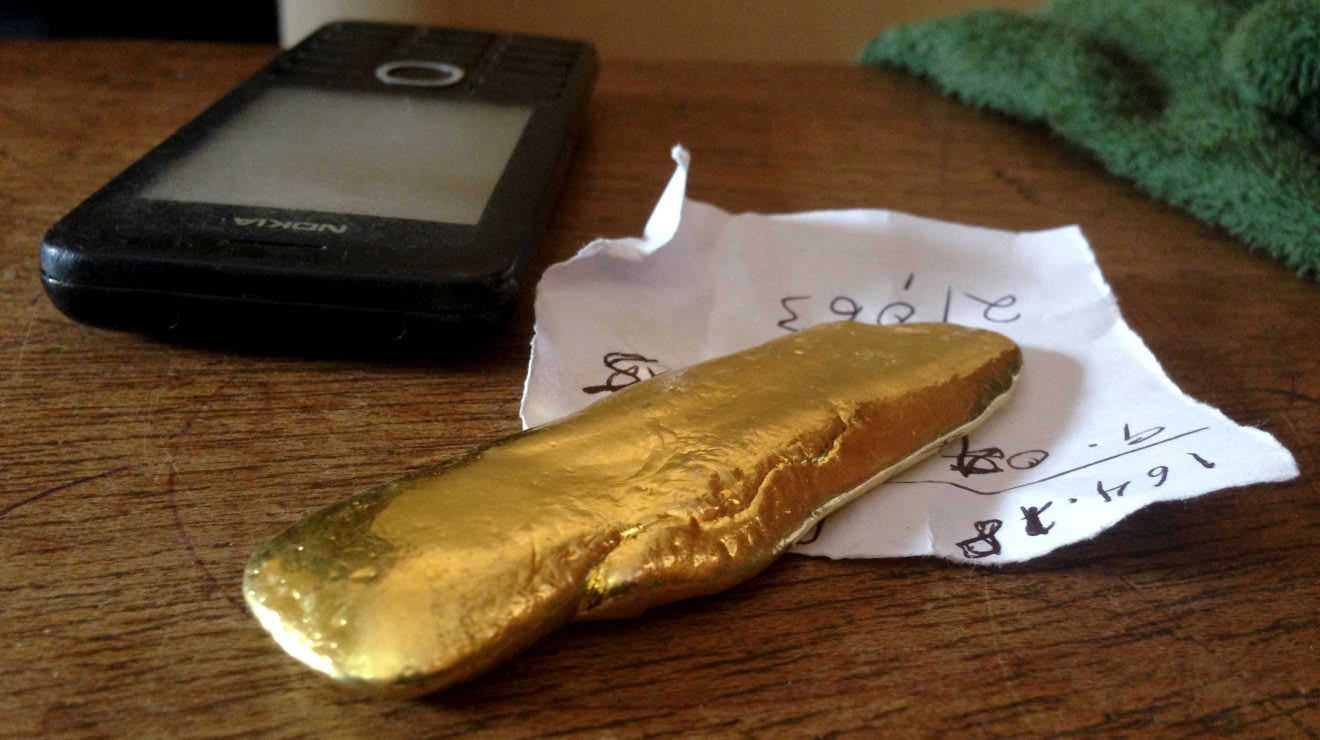
Ghanian gold smuggling has cost the country $11 billion, according to a survey
A report by the NGO Swissaid claims that smuggling from Ghana’s thriving artisanal gold mining sector, with a large portion of the gold going to the United Arab Emirates, costs the country billions of dollars every year.
With the majority of the smuggled gold ending up in Dubai, the investigation discovered a startling 229 metric ton trade imbalance, or $11.4 billion, between Ghana’s gold exports and matching imports during just five years.
Ulf Laessing, who leads the Sahel program at Germany’s Konrad Adenauer Foundation and studies artisanal mining and insurgency in the region, said, “This is just the tip of the iceberg.”
The statement, “Hand-carried gold does not have to be declared in Dubai… informal gold is mostly brought in on flights,” draws attention to the methods that African gold is smuggled into the United Arab Emirates.
According to a Swissaid investigation, most of Ghana’s gold is transported to Togo before arriving in Dubai, while other bullion uses porous borders to cross Burkina Faso and into Mali.
Swissaid’s results were referred to as “a notorious fact” by a top official of Ghana’s regulating Minerals Commission.
An inquiry for comment was not answered by Ghana’s finance minister.
The paper described how Africa’s leading gold producer implemented a 3% withholding tax on artisanal gold exports in 2019, which had a disastrous effect, causing stated shipments to plummet while smuggling increased.
The trend was somewhat reversible in 2022 when the government lowered the levy to 1.5%, resulting in a recovery in formal exports.
After removing the tax in March, Ghana’s finance minister praised policy changes for this year’s spike in artisanal exports.
According to a Swissaid report published on June 11, an estimated 34 tons of the nation’s 2023 gold output were unreported, which is roughly equal to the total quantity of artisanal production that year.
REFORMS BELOW SPEED
Ghana has accelerated changes to centralize and clean up the gold trade, which generated $11.6 billion in revenue last year.
Its situation reflects a trend observed throughout the continent: countries that produce gold in Africa routinely report lower exports than what importing nations, especially the United Arab Emirates, claim as receipts. Dubai has opened a new tab and implemented reforms to stop the smuggling of gold, but the results have been mixed.
According to a UN report from May, over 10 million people in sub-Saharan Africa depend on informal mining for their livelihoods, but it is also increasingly being used as a source of finance for armed conflict and organized crime.
Bright Simons of the Accra-based think tank Imani Center for Policy and Education stated, “The new government has demonstrated some willingness to fix some governance issues that have plagued the gold sector for years, and which were largely ignored by the previous administration, but its pace has been quite slow.”
All Categories
Recent Posts
Tags
+13162306000
zoneyetu@yahoo.com



